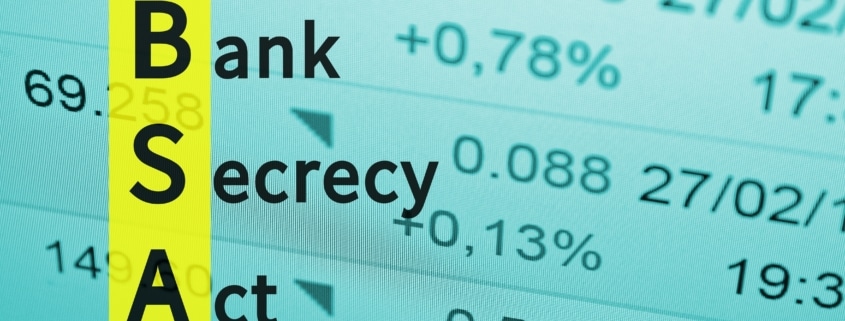The Bank Secrecy Act of 1970: What You Need to Know
In addition to the Tax Code, the IRS is charged with enforcing several other laws, including the Bank Secrecy Act of 1970 (The BSA). For most of its history, the BSA was a relatively obscure law that only impacted banks; it required banks to develop anti-money laundering internal controls. However, there are two provisions that significantly affect individuals and small businesses: offshore account disclosure and structuring.
Structuring of Bank Transactions
Under the BSA, banks must report transactions of over $10,000 to the government. Congress, fully aware that criminals would make a series of sub-$10,000 transactions to hide their activity, made it a crime to structure a transaction to avoid the reporting. Unfortunately, as detailed in this AgWeb article, and this Forbes article, many innocent people, especially those in cash-intensive businesses, unwittingly become targets for investigation, asset seizure, and prosecution.
RELATED: Tax Evasion vs. Tax Avoidance: The Difference and Why It Matters
Offshore Account Disclosure
Persons with control of foreign financial accounts (meaning it is either your money or you have signature authority) in aggregate value of $10,000 or more are required to file an FBAR return with the Treasury Department, as well as declare income from those accounts on their federal income tax returns.
In practice, very few people used to make the reports, relying on bank secrecy laws in Switzerland, the Cayman Islands, Liechtenstein, and other tax havens to hide their wealth and income. However, decades-long investigations by the United States, Germany, and other nations, plus private leaks like the Panama Papers, have broken the protections offered by those laws, and enforcement has been underway for over a decade now.
Both the U.S. and E.U. have passed new laws requiring banks to disclose accounts held by foreigners to their customer’s home governments.
It is believed that Chinese intelligence services are conducting operations to find their country’s tax cheats (which would not be unprecedented: the German intelligence service was the lead investigative agency in the Lichtenstein Affair of 2008). Where Germany turned over information it recovered about non-Germans to allied governments, I’m not aware of the Chinese doing the same. The Chinese may simply be protecting their means and methods of intelligence gathering, or they may try to use the information they find on third-party nationals to blackmail those persons into becoming intelligence assets.
RELATED: IRS Knocking at Your Door? How to Tell if They’re the Real Deal
How to Protect Yourself
If you have not disclosed your foreign accounts, there are limited opportunities to come clean to avoid criminal investigation and prosecution. This should be carefully done through experienced tax counsel.
If you are in a cash-intensive business or make a number of cash transactions in a short period of time, keep careful records of those transactions and their purpose, and why it was not done as a single transactions. For example, one target of a prosecution was a woman buying a used car, who made over 20 ATM withdrawals because the ATM was limited to $500 per transaction.
The Bank Secrecy Act of 1970 is a criminal statute: only IRS Criminal Investigations pursue these matters. If you are approached by an IRS Special Agent, who has a gun and a police-style badge, make use of your right to remain silent, and immediately seek legal counsel!
The content provided here is for informational purposes only and should not be construed as legal advice on any subject.




Leave a Reply
Want to join the discussion?Feel free to contribute!